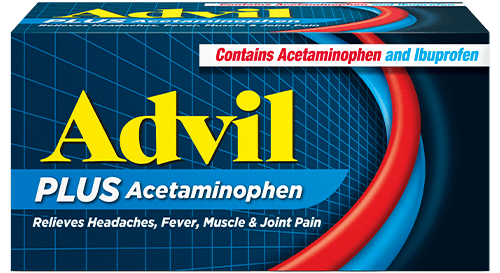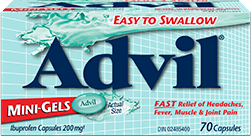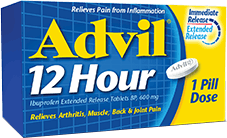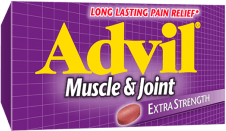Tips for Living Better with Arthritis
Learn more about some things you can do to help manage your pain and lead a more enjoyable life.
Living with arthritis can be challenging, but there are some things you can do to help manage your pain and lead a more enjoyable life.
- Be physically active. To prevent further joint injury, choose low-impact activities such as stretching and exercises that move the joints in different directions to keep them from becoming stiff (called range of motion exercises). It is recommended to talk to your healthcare provider about a physical activity routine that works best for you.
- Take anti-inflammatory drugs (NSAIDs) like Advil Arthritis Pain or Advil 12 Hour for fast, long-lasting pain relief. Advil goes to work at the site of your inflammation—so you can go the distance.
- Achieve and maintain a healthy weight. The more weight that is placed on a joint, the more that joint is stressed. For example, every pound of excess weight exerts about four pounds of extra pressure on the knees, and excess fat releases chemicals that promote inflammation.
- Use heat and cold to temporarily relieve pain and stiffness. Heat improves circulation, which delivers nutrients to joints and muscles, soothing stiff joints and tired muscles. Cold slows circulation, which reduces swelling, and it numbs nerve endings, which dulls pain. Do not apply heat or cold to your skin if you are also using a cream or lotion to relieve your pain, because these products can numb your skin, making it difficult to feel temperature.
- Avoid smoking and limit alcohol. The toxic substances in tobacco can increase the stress on connective tissues, which can increase arthritis pain. Drinking more than a moderate amount (maximum of one drink a day for women, two for men) can also trigger inflammation.
- Use assistive devices to make routine tasks easier, such as: zipper pulls and buttoning aids that assist with getting dressed, extensions that help turn door handles, and tools that make other everyday activities easier.
- Plan carefully when travelling by arranging for special needs beforehand and using lightweight luggage with shoulder straps and wheels.
- Plan for work by making sure your work station is ergonomically designed and avoid lifting or moving heavy items.
Be sure this product is right for you. Always read and follow the directions on the label. This information is provided for educational purposes only and should not be used as a substitute for professional medical advice, diagnosis, or treatment. Speak to your healthcare professional before making any changes to your lifestyle or before beginning or discontinuing any course of treatment. Never disregard professional medical advice or delay in seeking it because of something you have read on this site.





